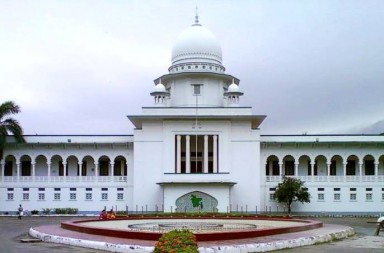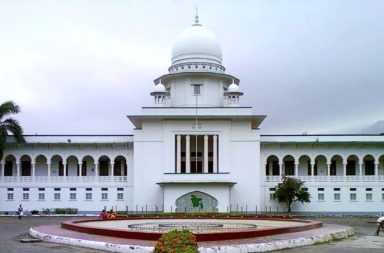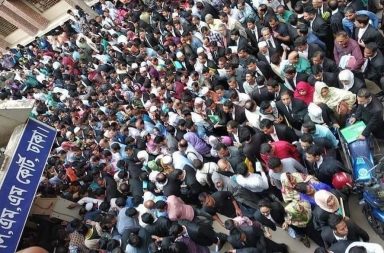Before delving into the theoretical discussion, let us begin with a recent incident.
Two national intelligence agencies have started investigation against Judge Harunur Rashid, who is now working as Metropolitan Magistrate at the Chittagong Metropolitan Court. On May 9, 2016, four different teams from two of the agencies have visited the Chittagong Court, and also Chittagong University from where the judge graduated.
The Judge came under spotlight when he punished a student leader named Nurul Azim Roni (Secretary of the Chittagong City Unit of Bangladesh Chhatra League) for electoral offenses, and sent him to jail with a sentence of two years under the Election Rules, 2016. Roni was arrested by the BGB from a polling center of Hathazari with a 9 m.m. pistol and 15 rounds of bullets. Judge Harunur Rashid was acting as the Mobile Court on that spot, and the immediately sentenced Roni for the punishment for electoral violence. A case for carrying illegal arms has also been lodged.
However, sympathizers and party-men of Roni accused the Judge of being politically motivated, and hinted that he belongs to the opposition political ideology. Now, National Intelligence agencies started to search for his background and affiliations, and also his activities during the period of studentship at the Department of Law of University of Chittagong.
However unlikely it might sound, this is not very surprising in Bangladesh.
Very recently, Supreme Court of Bangladesh issued an order to the subordinate Courts to adhere to a more strict attitude and standard, since there have been some attempts to influence the judicial proceedings through phone calls or in other ways. In a special letter sent to all the Judges on April 27, 2016, the Supreme Court instructed them to be more strict to follow the principles, and to be prompts to punish anyone who intends to influence the judicial proceedings.
In a hierarchical judiciary, the higher courts usually control subordinate courts to avoid deviations from the higher standard of judicial behavior thus preventing damage to public confidence in the judiciary (Hussain Ara Khatoon v State of Bihar (1979) Cr L J 1045). The Constitution, in a number of provisions, warrants the separation of the judiciary from the executive as an overriding goal to ensure judicial independence in a functional sense.
Some recent incidents also show some desperate attempts from the Executive to establish a control over the judiciary; especially with the 16th Constitutional Amendment and the ongoing process to adopt the Bangladesh Supreme Court Judges (Investigation) Act 2016, which empowers the parliament to impeach any Supreme Court judges. However, in a very bold step, High Court Division has declared the 16th Constitutional Amendment as illegal, which hinders the process of the Govt. for a while.
“Historically, adherence to the due process of law and justice in the performance of executive functions is almost non-existent in Bangladesh. There is a great deal of executive interest at stake in the separation of the judiciary. The maintenance of a dependent judiciary has been politically expedient for the executive. It is therefore unlikely that the initiative would come from any executive government. It is indeed the judiciary itself that has been instrumental in forcing the executive to formally proclaim the separation of the judiciary in the aftermath of the Masdar Hossain case. There appears to be no palatable alternative other than further higher judicial tenacity and activism in contriving ways to ensure the constitutionally entrenched separation and independence of the lower judiciary. Shagging-off this popular expectation and constitutional requirement may fuel a public confidence crisis in the judiciary and might be paradoxical to its status as the guardian of the Constitution.”
– M Rafikul Islam, Professor of Law at the Macquire University of Australia
In this situation, one can do nothing but hope that Bangladesh will be back in the track, to ensure the functioning of an independent judiciary, which will work as the pivot for the other organs and institutions who are also lacking energy and motivation. As former US President Andrew Jackson rightly noted, all the rights secured to the citizens under the Constitution are worth nothing, and a mere bubble, except guaranteed to them by an independent and virtuous Judiciary. It is, after all the last resort for everyone aggrieved !
Where art thou, Bangladesh !



